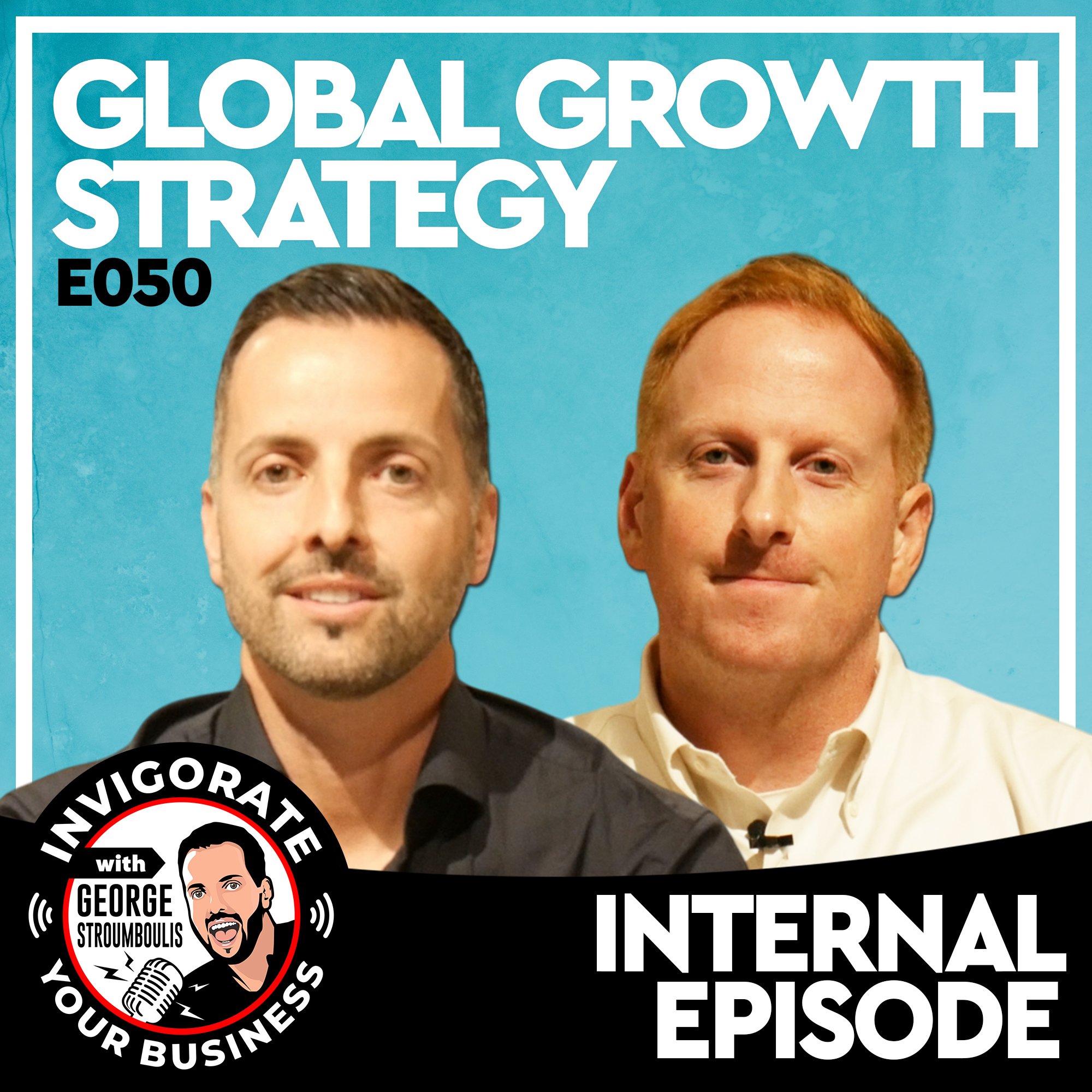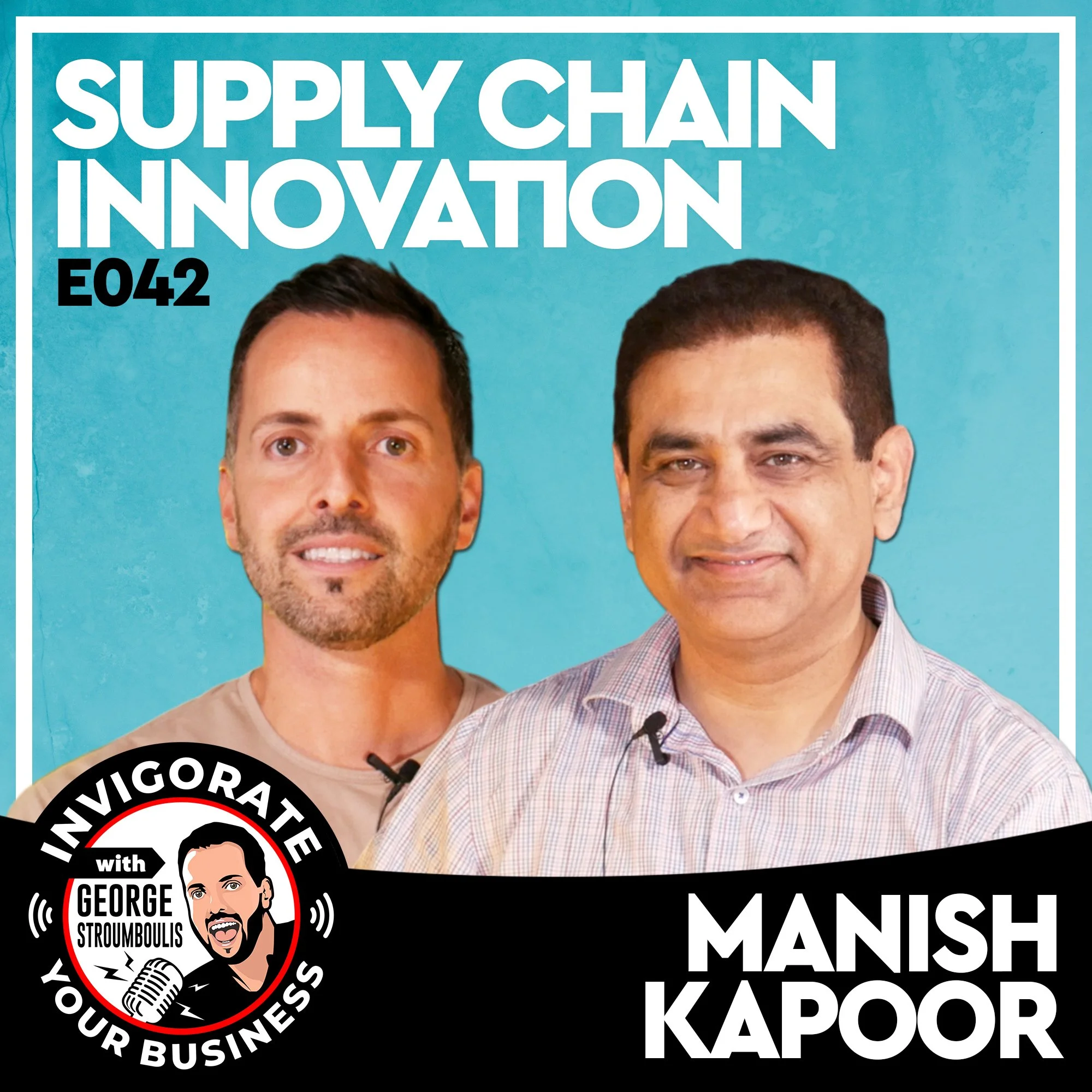10 YEAR CAREER PLAN FOR MY FAMILY AND BUSINESS
“AS I GREW UP WITH MY PARENTS AT THE FAMILY RESTAURANT, I TOO WANT MY KIDS WITH ME WHILE WE BUILD THIS COMPANY.”
sTAY ALIVE. kEEP bUILDING.
Q: George, what are your future plans. What do you want?
A: To be alive. To be healthy. In the next 10 years I would like to continue growing my company and the same way I grew up at the feet of my parents in the family restaurant, I would like my children to be at my feet at my company. To see and learn from me. And in the next 2-3 years I would like to bring production to Greece, outside of Athens, to produce custom lighting products and not only design in Greece. It's a serious step I am chasing and we will see where it goes.
---
Ε: Γιώργο, ποια είναι τα μελλοντικά σου σχέδια. Εσυ τι θελεις?
Α: Να είσαι ζωντανός. Να είσαι υγιής. Στα επόμενα 10 χρόνια θα ήθελα να συνεχίσω να μεγαλώνω την παρέα μου και όπως μεγάλωσα στα πόδια των γονιών μου στο οικογενειακό εστιατόριο, θα ήθελα τα παιδιά μου να είναι στα πόδια μου στην παρέα μου. Για να δεις και να μάθεις από μένα. Και στα επόμενα 2-3 χρόνια θα ήθελα να φέρω παραγωγή στην Ελλάδα, εκτός Αθηνών, για να παράγω custom φωτιστικά προϊόντα και όχι μόνο design στην Ελλάδα. Είναι ένα σοβαρό βήμα που κυνηγάω και θα δούμε που θα πάει.
On the TV Show, Greece in our Hearts with TV host, Babis Petrakis.
The importance of career plans?
Career planning is essential for several reasons, as it provides individuals with a roadmap for their professional development and helps them navigate their career path effectively. Here are some key reasons why career planning is important:
Goal Setting: Career planning involves setting specific career goals and objectives. This process allows individuals to define what they want to achieve in their professional lives, whether it's climbing the corporate ladder, starting a business, or making a career transition.
Direction and Focus: Having a career plan provides a sense of direction and focus. It helps individuals make informed decisions about their education, training, and job choices, ensuring that each step aligns with their long-term career objectives.
Personal Development: Career planning encourages continuous learning and skill development. It prompts individuals to identify the skills and qualifications needed to advance in their chosen field, fostering personal and professional growth.
Decision-Making: When individuals have a clear career plan, they can make better decisions about job opportunities, projects, and training programs. This clarity enables them to evaluate choices based on how well they align with their overall career goals.
Adaptability: Career plans are not static; they can be adjusted and adapted as circumstances change. Having a plan allows individuals to navigate unexpected events, such as job market fluctuations, industry changes, or personal life developments, with a more strategic approach.
Motivation and Engagement: Knowing that there is a purpose behind the work being done can enhance motivation and engagement. A well-thought-out career plan provides a sense of purpose, making day-to-day tasks more meaningful.
Time Management: Career planning helps individuals prioritize their time and energy effectively. By understanding their long-term objectives, they can allocate resources appropriately and avoid investing time in activities that don't contribute to their overall career goals.
Networking Opportunities: A career plan often involves building a professional network. Networking can open doors to new opportunities, collaborations, and mentorship, all of which can be instrumental in career advancement.
Job Satisfaction: Understanding one's career goals and working toward them can contribute to overall job satisfaction. When individuals are in roles that align with their values, interests, and aspirations, they are more likely to find fulfillment in their work.
Financial Planning: Career plans often involve considerations of income growth and financial stability. Planning for salary expectations, bonuses, and potential career advancements enables individuals to make informed financial decisions for their future.
In summary, career planning is a proactive and strategic approach to managing one's professional life. It empowers individuals to take control of their careers, make informed decisions, and work towards long-term success and satisfaction.
HOW TO DEVELOP A 5 YEAR OR 10 YEAR CAREER PLAN?
Developing a 5-year or 10-year career plan involves thoughtful reflection, goal setting, and strategic thinking. Here's a step-by-step guide to help you create a comprehensive career plan:
1. Self-Assessment:
Reflect on your values, interests, skills, and passions.
Identify your strengths and areas for development.
Consider what motivates and fulfills you in a professional context.
2. Define Your Long-Term Goals:
Envision where you want to be in 5 or 10 years.
Consider your desired job title, industry, level of responsibility, and work environment.
Think about the lifestyle you want to achieve through your career.
3. Set SMART Goals:
Make your goals Specific, Measurable, Achievable, Relevant, and Time-bound (SMART).
Break down long-term goals into smaller, more manageable milestones.
4. Research and Explore:
Investigate the skills and qualifications required for your desired career path.
Explore potential industries, companies, and roles that align with your goals.
Seek informational interviews and gather insights from professionals in your field of interest.
5. Create Short-Term Objectives:
Develop short-term goals that contribute to your long-term vision.
These could include acquiring specific skills, completing relevant certifications, or gaining experience in a particular area.
6. Identify Potential Obstacles:
Anticipate challenges that may arise and think about how to overcome them.
Consider potential roadblocks and develop strategies to address them.
7. Build a Professional Network:
Establish and expand your professional network.
Connect with mentors, industry professionals, and colleagues who can offer guidance and support.
8. Education and Skill Development:
Identify educational opportunities and certifications that align with your career goals.
Plan for continuous skill development to stay relevant in your chosen field.
9. Financial Planning:
Consider the financial aspects of your career plan, including salary expectations and budgeting.
Plan for saving, investments, and any financial goals tied to your career.
10. Regularly Review and Adjust:
Regularly review and reassess your career plan, especially if there are changes in your goals, industry trends, or personal circumstances.
Be flexible and open to adjustments as needed.
11. Seek Feedback:
Solicit feedback from mentors, colleagues, or industry experts.
Use feedback to refine your goals and strategies.
12. Stay Informed About Industry Trends:
Stay updated on industry trends, technological advancements, and changes in the job market.
Adapt your plan based on the evolving landscape.
13. Balance Personal and Professional Goals:
Consider how your career goals align with your personal life and values.
Strive for a balance that supports overall well-being.
14. Document Your Plan:
Write down your career plan in a document or use tools like spreadsheets or project management apps to keep track of your goals and progress.
Remember that a career plan is a dynamic document that can be adjusted as your goals and circumstances change. Regularly revisit and revise your plan to ensure it remains relevant and aligned with your aspirations.
THE IMPORTANCE OF IMMIGRANT FAMILY BUSINESSES IN CANADA AND THE USA?
Immigrant family businesses play a significant role in the economic and social fabric of both Canada and the United States. Here are some key points highlighting the importance of immigrant family businesses in these countries:
Canada:
Economic Contribution:
Immigrant family businesses contribute substantially to the Canadian economy by creating jobs, generating income, and contributing to overall economic growth.
Diversity and Innovation:
Immigrant entrepreneurs often bring diverse perspectives and cultural insights, fostering innovation within the business landscape. This diversity can lead to the development of new products and services.
Community Development:
Immigrant family businesses often play a vital role in community development, contributing to local economies and creating a sense of community by providing goods and services to residents.
Entrepreneurial Spirit:
Many immigrants come to Canada with a strong entrepreneurial spirit, and family businesses are a common way for them to establish themselves and build a foundation for future generations.
Job Creation:
Immigrant family businesses are significant contributors to job creation, employing individuals within their communities and providing opportunities for economic advancement.
United States:
Economic Impact:
Immigrant family businesses make substantial contributions to the U.S. economy, accounting for a significant portion of small and medium-sized enterprises (SMEs).
Job Creation:
Immigrant entrepreneurs create jobs for Americans, helping to reduce unemployment rates and stimulate economic growth. Many family businesses become pillars of local employment.
Innovation and Global Connections:
Immigrant family businesses often bring a global perspective, fostering international connections and contributing to the overall innovation and competitiveness of the U.S. economy.
Cultural Diversity:
Immigrant family businesses contribute to the cultural diversity of the U.S. business landscape, offering a variety of products and services reflective of different cultural backgrounds.
Contribution to Small Business Landscape:
Immigrant-owned family businesses are prevalent in the small business sector, which is a crucial driver of economic activity in the U.S. They often serve as the backbone of local economies.
Community Engagement:
Immigrant family businesses are often deeply engaged with their local communities, participating in philanthropy, sponsoring local events, and contributing to community development.
Succession Planning:
Many immigrant family businesses focus on succession planning, passing down the business to the next generation. This continuity contributes to the stability and longevity of these businesses.
In both Canada and the United States, immigrant family businesses play a vital role in fostering economic growth, job creation, and community development. Their contributions extend beyond the economic realm, impacting the cultural and social fabric of the countries they operate in. Additionally, these businesses often embody the entrepreneurial spirit and resilience of immigrant communities.





















